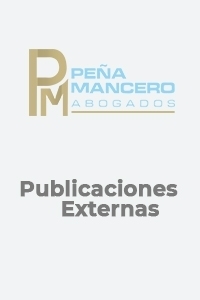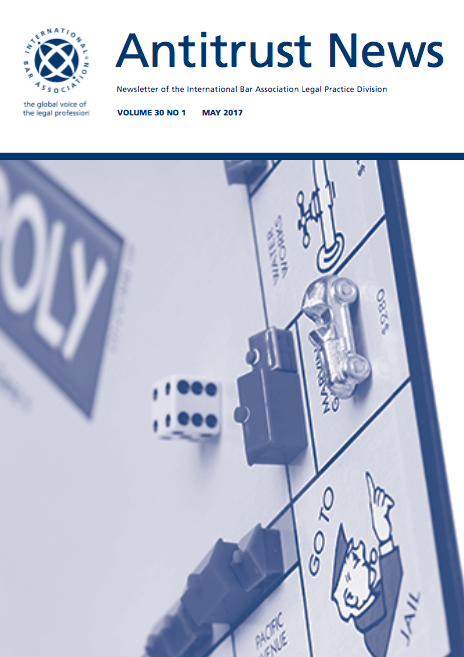Landmark developments in Colombian competition practice and regulation

Three recent developments in Colombian competition practice and regulation reflect the country’s willingness to advance towards the implementation of international standards and compliance with OECD parameters.
Historical sanction imposed on the sugar cartel
 As previously reported,[1] the Superintendence of Industry and Commerce (SIC) carried out an investigation for restrictive trade practices against the sugar-producing associations and against the main sugar factories in Colombia.
As previously reported,[1] the Superintendence of Industry and Commerce (SIC) carried out an investigation for restrictive trade practices against the sugar-producing associations and against the main sugar factories in Colombia.
In a highly controversial decision,[2] the SIC has imposed sanctions on three sugar-producer associations and 12 sugar-cane companies for acting ‘in a coordinated way for several years to obstruct Colombian sugar imports from Bolivia, Guatemala, El Salvador and Costa Rica.’
At an individual level, the SIC also imposed fines against 14 executives of the Colombian sugar-industry executives for having ‘cooperated, facilitated, authorised or tolerated the anti-competitive practices sanctioned.’
Fines imposed are equivalent to over COP$320m (approximately US$107m). This is a historical fine without precedent in the agency’s practice. The SIC has claimed that fines do not exceed either seven per cent of the annual operational income or seven per cent of the equity of the sanctioned corporations.
As mentioned in the SIC resolution, the fines imposed were particularly high due to the fact that some of the cartel participants had been previously found guilty in another case in 2010 of creating illegal coalitions to limit prices paid to sugar-cane growers.
The sanctioned sugar-producer groups are Asocaña, Ciamsa and Dicsa.
According to the SIC, the coordination by the participants in the cartel ‘exceeded their rights of association’ and free enterprise. The companies investigated had ‘deliberately blocked sugar imports to Colombia to keep supply from increasing so that the internal prices for sugar paid by the industry would be lower’.
The agency said the companies involved also set up organisations to acquire production from regional sugar producers outside of Colombia to make sure those sugar volumes were sold elsewhere and would never make their way into Colombia.
The decision is still subject to further remedies including an appeal and final decision by the Council of State at contentious administrative level. The Colombian Sugar Cane Growers Association (Asocaña) has expressed their rejection of the decision made and has claimed that the SIC has imposed an ‘exorbitant’ fine, depriving the industry players of their right of defence and affecting their goodwill. Of course this has resulted in broad media coverage with questions being raised as to whether such high fines really help the market and consumers or if it is just another blow to the Colombian industrial sector.
New regulation in favour of whistleblowers
On 16 July 2015, the Ministry of Industry, Commerce and Tourism issued Decree 1523 of 2015 (the ‘Decree’), a regulation that introduces new measures for whistleblower protection in Colombia.
First of all, the Decree establishes the following procedure for whistleblowers to benefit from the reporting programme:
- Reporting on the existence of an alleged cartel may be done through email, in writing or orally before the designated officer. From the time of report, that person shall have priority over other whistleblowers.
- In order to be admitted to the benefit programme for cooperation, the whistleblower (either business entity or individual) must: (1) acknowledge and confess to their cartel participation; (2) file information about the existence of the anti-competitive agreement and on how it works; (3) name the product or service involved; and (4) name the other companies involved or participating in the cartel.
- The SIC then starts a benefit negotiation process together with the collection and assessment of evidence, in order to determine if such benefits are granted through the execution of an agreement with the whistleblower. The agreement will be subject to the reporting party filing all evidence required, complying with the SIC’s instructions and terminating his participation in the cartel.
- If the agreement is executed, the reporting party will be exempt from the fine to be imposed by the SIC for the anti-competitive behaviour – or the fine will be reduced.
The Decree also grants cooperation benefits to such whistleblowers who were originally the promoters of or the parties causing the anti-competitive behaviour but did not threaten or force the other parties’ participation. If they did, then they may not benefit from the programme.
The new regulation reduced the timeframe for reporting purposes and thus for benefiting from the cooperation programme. Before the Decree, the deadline for reporting expired on the date of issuance of the SIC’s own report, which resulted in delays in the investigated parties’ decision to cooperate. The Decree now requires whistleblowers to report no later than before the filing of the response to the SIC’s cartel claim. This will allow the SIC to determine, at an early stage of the process, whether cooperation will exist.
The following are the main benefits deriving from the cooperation programme:
- First whistleblower: 100 per cent fine exemption;
- Second whistleblower: 30 per cent to 50 per cent fine exemption provided additional evidence to that provided by the first whistleblower is provided;
- Third (and subsequent) whistleblower: 25 per cent fine exemption.
Reasons for losing the benefits granted are:
- if the whistleblower challenges the investigation;
- id they do not cooperate with the investigation;
- if they disregard the authority’s requests; or
- if they destroy, alter or obstruct access to information or evidence.
New draft bill to amend competition regulation
On 4 August 2015, the Minister of Commerce and the Superintendent of Industry and Commerce presented a draft bill to Congress with the aim of amending the existing competition regulation. Draft Bill No 38 of 2015 (the ‘Draft Bill’) consists of 24 articles prepared by the SIC with the assistance of the OECD to strengthen the mechanisms that the competition agency may have to enforce the regulation; to provide more benefits for whistleblowers; to make the competition regime more transparent for corporations and consumers while adjusting the regulation to international standards and best practices.
The following are the most relevant aspects of the Draft Bill:
- Increase in the amount of sanctions: Currently the maximum fine that may be imposed by the SIC is 100,000 times the minimum monthly legal wage (approximately COP$65bn – US$22m). The Draft Bill proposes an increase in fines through a system whereby sanctions may correspond to a percentage of up to 30 per cent of the annual sales of the product or service involved in the anti-competitive conduct, or up to ten per cent of the revenue or equity of the investigated company during the year prior to the date of sanction.
- Additional sanctions in cartel or public bid collusion: The Draft Bill introduces an ineligibility to enter into contracts with the state ranging from two months to five years to those persons sanctioned by the SIC for public bid collusion practices. It also empowers the SIC to decree, as a precautionary measure, the exclusion of a proponent when material evidence exists about public bid collusion practices.
- Criminal prosecution for cartel or public bid collusion practices: The Draft Bill allows the SIC to start criminal proceedings in cartels or public bid collusion cases.
- Identity reserve and evidence presented by whistleblowers: The Draft Bill provides for the confidentiality of the identity of whistleblowers and of the evidence submitted as part of the cooperation programme.
- Hearing before the Competition Advisory Council: The Draft Bill introduces a hearing to be held between the investigated parties and the Competition Advisory Council, which consists of five independent experts appointed by the President of the Republic. During such hearings, the parties may present their case.
- Merger control in the aviation and financial sectors: Currently merger control in the aviation and financial sectors is not carried out by the SIC but by the corresponding agencies (ie, Aviation Authority and Financial Superintendence, respectively). The Draft Bill grants the SIC the right to issue opinions recommending the approval of or objection to concentrations to the said entities and such opinions will be binding.
- Jurisdictional powers for the SIC to grant damages in antitrust cases: The Draft Bill allows the SIC to act as a judge in proceedings regarding damages in favour of persons affected by cartels, abuses of dominant position and any other anti-competitive practice.
- One-stage proceedings at the Council of State for processing nullity actions against administrative acts imposing sanctions for anti-competitive conducts and merger control decisions: The Draft Bill abolishes the need to wait for first-instance decisions by administrative judges and tribunals thus being able to be heard directly by the highest administrative court – the Council of State – in one-stage proceedings.
The above developments certainly reflect the government’s political will to advance towards a modern regulation highly inspired by developed countries’ experiences. The question of course remains as to whether the regulation is actually shaped to respond to the current Colombian market’s needs or whether it is overly cumbersome for such a developing economy.
Antitrust Committee publications, Colombia. (2015).Landmark developments in Colombian competition practice and regulation [digital version]. Recuperado de http://bit.ly/1Jc6khy
[1] Gabriela Mancero, ‘Colombian competition agency to sanction sugar cartel’ (2015) 28(2) IBA Antitrust Newsletter 14.
[2] Superintendence of Industry and Commerce, Resolution No 80847, 7 October 2015.

New provisions related to the prevention of money laundering, financing of terrorism and financing of the proliferation of mass destruction weapons
CAUSE FOR DISOLUTION OF COMPANIES DUE TO NON-COMPLIANCE WITH THE HYPOTHESIS OF CONTINUING BUSINESS



